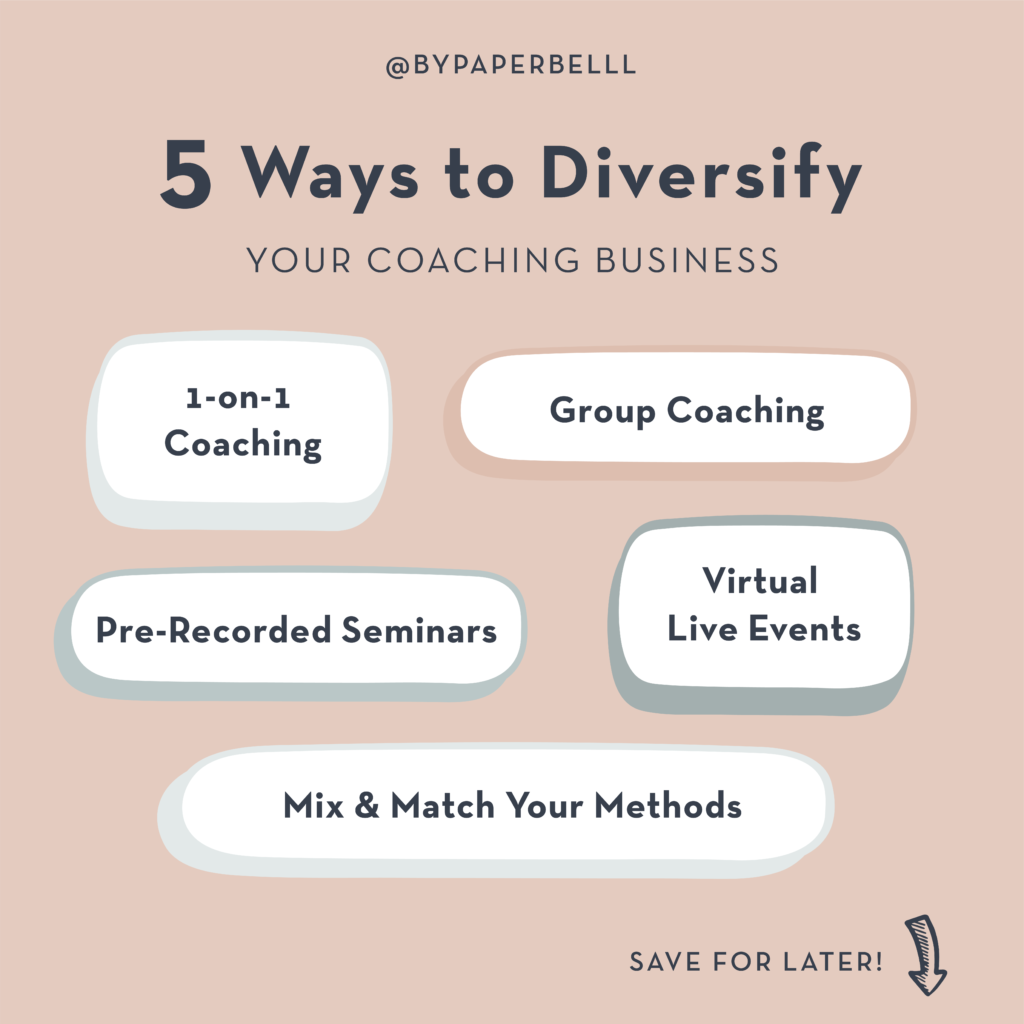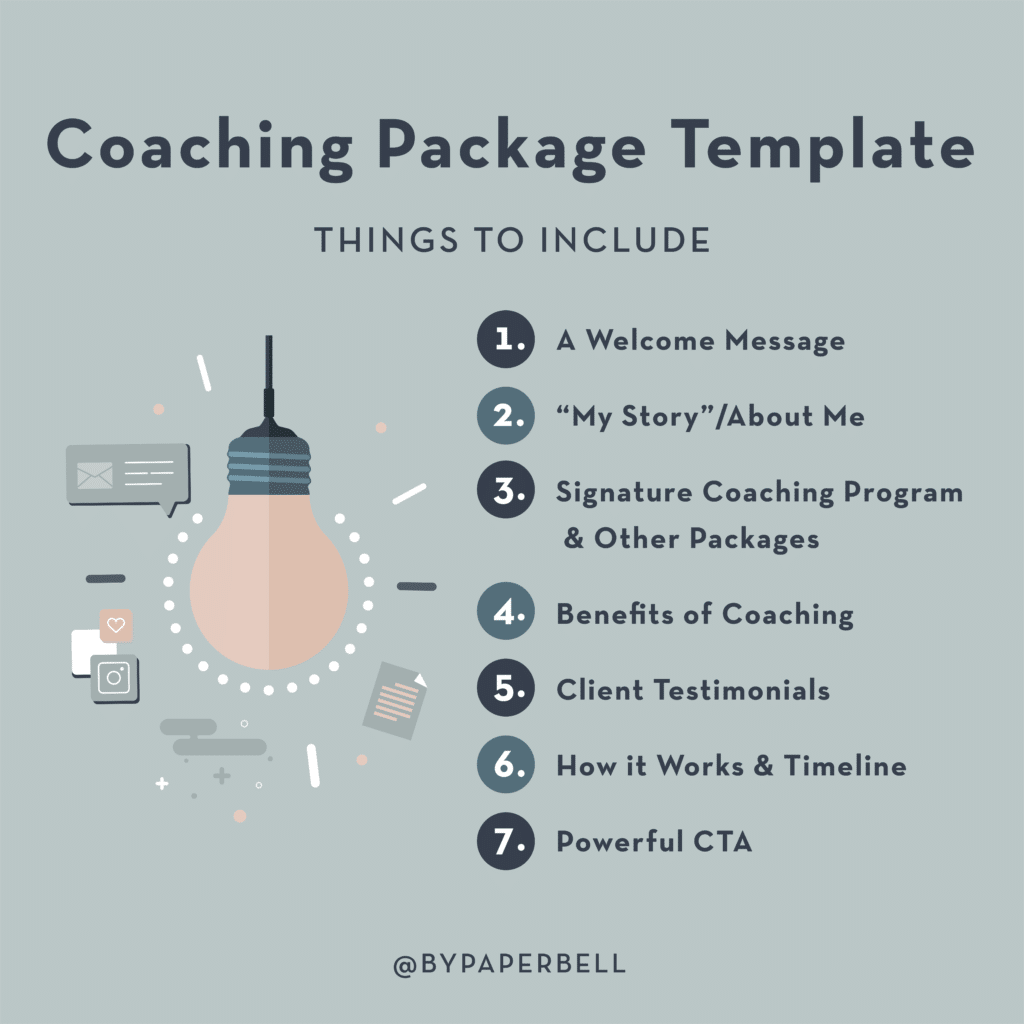Have you ever thought about making the jump and becoming a professional life coach?
Life coaching has become an increasingly popular and sustainable profession in recent years despite the recession. It’s a $20 billion industry with around 93,000 practitioners worldwide.
In this blog post, we will discuss the sought-after question, “How much do life coaches charge?” Furthermore, we’re going to provide some handy tips and tricks that you can use to set your rate.
What’s the average life coaching salary?
A life coach’s average yearly salary (as of 2025) is between $58,000 to $107,000, depending on their location, years of experience, and specialization. Coaches charge from $20 to $300 an hour for their sessions on average, but as you probably know, conducting sessions is not the only thing coaches do.
As a coach, you need to run your business operations and acquire new clients through marketing channels, which is a full-time job. So, based on these yearly salaries, it’s more likely that a life coach’s hourly rate is between $15 to $40 an hour.
There are also celebrity coaches who make above-average salaries well into six figures. They normally receive a lot of publicity through media appearances or book deals, which gives them additional revenue streams and a higher demand for their services.
Pro tip: You can increase your hourly rate by decreasing your hours on admin work. That’s why a tool like Paperbell can significantly help you reach your revenue goals because it takes care of all the admin work for coaches.
5 Ways to Diversify Your Coaching Business

Most coaches own their own business, which gives them a lot of flexibility in managing their practice. You can implement several strategies to scale your business and adapt your business model along the way to serve a larger number of clients.
Let’s explore these strategies and how you can make them work for you.
1-On-1 Coaching
One-on-one coaching enables you to build a solid relationship with a client. It typically involves a weekly, 60 to 90-minute session (in person or online).
In these sessions, you can learn more about clients’ expectations and what they wish to achieve. This way, you can create a tailor-made program for them.
This type of coaching is highly satisfying, as you can witness your client’s individual journey towards reaching their full potential. After all, this is what the essence of coaching is.
Group Coaching
As the name implies, group coaching enables you to serve multiple individuals in one session. You can do this by grouping clients that would benefit from learning from each other and creating a conference call with them.
Ensure you allocate time to hear each individual’s progress and concerns and give them personalized advice when necessary. This approach will make your clients feel valued. What’s more – group coaching is an excellent opportunity for your clients to network, learn from other individuals’ experiences, as well as improve their interpersonal communication skills.
[ Read: The Pros and Cons of Group Coaching Programs ]
Live Events
A TEDx Talk may be the first thing that comes to mind when using coaching as an expertise at a live event. If you get a kick out of speaking in front of a live crowd, then you should definitely consider booking yourself as a speaker for an event like this.
A live on-stage event, conference, or even a webinar are excellent ways to help many people at once and earn a reputation as a leader amongst your peers. What’s more – live events can also be used as a lead-generation strategy as you will instantly reach many potential clients without wasting countless hours browsing companies on Linkedin.
If used wisely, webinars can be even more effective than in-person, live events. Webinars enable you to reach potential clients from across the globe in real-time. Best of all, these virtual events enable you to work from anywhere in the world – even while sipping a Margarita in the Caribbean.
Without a shadow of a doubt, these events are a great business boost. They can be used to…
- Onboard new clients
- Upsell repeat clients into long-term coaching sessions
- Earn the respect of your peers and competitors
- Earn money from event ticket sales
- Position yourself as an expert in your area
Pre-Recorded Classes and Seminars
Another excellent way to run your business more efficiently and create more breathing space in your busy schedule is to pre-record sessions, seminars, and courses that you can sell to multiple clients at a lower price.
Coupling these pre-recorded sessions with a Facebook support group or bi-monthly group coaching calls ensures that your clients feel valued and they get personalized guidance from you.
Mix and Match
To be successful as a coach, you need to diversify your methods and take new opportunities as they arise. Many coaches combine two or more of the strategies mentioned above to ensure that they’re always ahead of the curve.
Here’s how you can mix and match different business models in your coaching practice.
- Join a live event or webinar, and prepare an inspiring speech that can also serve as a sales pitch for your business.
- From there, build a list of individuals who would be interested in a pre-recorded course and group coaching calls.
- These new clients will, in turn, recommend you to their friends, colleagues, and business partners.
- Make sure you retain and nurture these leads and watch your revenue increase in the coming months.
Take the Time to Expand Your Skill Set
Experience and education usually go hand in hand. A successful coach is always willing to learn and expand their skill set through life-long education.
You may not be able to increase your income overnight, but continuing your education and learning more about coaching is a foolproof and sustainable way to increase your rates in the long run.
Here are a few ways you can improve your qualifications as a coach and as a result, increase your rates.
Join A Certification Program
Consider obtaining coaching certifications from reputable organizations like ICF (International Coaching Federation). A certification not only validates your skills but also builds trust with clients who often prefer working with certified coaches.
Find Your Coaching Niche
Specializing in a particular niche or area of coaching can make you more attractive to clients seeking expertise in that domain. Whether it’s executive coaching, life coaching, health coaching, or another specialty, deepening your knowledge can lead to higher-paying clients.
Continuous Learning
Commit to ongoing education and professional development. Attend workshops, seminars, and training programs related to coaching in your niche. Staying updated on industry trends and best practices is essential to help your clients effectively.
Mentoring and Supervision
Seek mentorship or supervision from experienced coaches in your specialization. Learning from their experiences and insights can help you refine your coaching skills and approach to serve your clients better.
Feedback and Self-Reflection
Send feedback forms to your clients to encourage honest reviews or ask them directly at the end of a coaching collaboration. Continuous self-reflection on your coaching methods also helps you identify areas for improvement and where you need to grow to be a better coach. Constructive criticism can be a powerful tool for growth.
Examples of Life Coaching Packages
Selling your packages online is essential, and Paperbell makes this super easy! It enables potential clients to set their expectations, reflects on what they want to achieve from their sessions, and review their budget.
Here are a couple of basic life coaching packages you can start offering that are guaranteed to kickstart (or expand) your business.
Life Coaching Discovery Session
This is usually a free, no-obligation introductory session that will enable the client to learn more about what they can expect from your service. During this session, you should gauge whether this client is a good fit for you and if you will be able to help the client achieve their goals.
Single Session
This 60 to 90-minute session is your client’s first step in their coaching journey. As a coach, you can start exploring what your client wants to change in their life and how coaching can help them realize what is working and what isn’t. From here, you can decide if you’d like to continue your work, offering a larger package.
Multi-Session Packages
In this type of package (which you can create and sell in Paperbell), you charge your clients up-front for multiple sessions. You can also utilize a payment plan to spread the payments out in line with the sessions. For example, you might provide 6 monthly coaching sessions with 6 monthly payments.
Ongoing Subscriptions and Sessions-Per-Month Packages
With this package, your clients get an automatically recurring monthly subscription and commit to a certain number of sessions each month. Subscriptions are a consistent income source for coaches and are a great way for clients to know that they will always be supported on an ongoing basis.
Quarterly Packages
This package is ideal for clients who have already invested in a good amount of coaching sessions and feel like they need someone to keep them accountable for any set goals. As a coach, this package serves as a quarterly follow-up with your client to ensure that their life continues to move in the right direction.
6-Month Or Yearly Packages
Although not as common, some coaching programs can last up to six months or even a year. These packages usually follow a more structured approach based on a tried and tested process and go deep into a particular area of your client’s life.
If you’ve taken several of your clients through a process that has proven results, you can expand that process into a longer collaboration and use your previous reviews as social proof for your new intake. It’s even more effective if you run your long-term coaching programs in cohorts with set dates and combine them with group coaching so clients can grow through the process in tandem.
How Should I Price My Coaching Package so that They Actually Sell?
Package prices can vary widely. Here are the factors you should take into account when you set their fees.
Time
How much of your time are you investing in your client and coaching packages? If you spend one hour with a client plus another 10-15 minutes per day sending emails, you should ensure you’re getting paid for all those hours.
Skills
Do you have an extensive database of case studies that you can show to interested individuals? Do you have the necessary training and certifications? Are you looking to elevate your business, or are you trying to kickstart a business? As your skills increase, your clients’ results increase, and your rate should increase, too.
Competition
Although the fees your competitors charge depend on many factors, including their location, it’s a great starting point to see what works in the market. Make sure that you’re not undervaluing your skills, and review your pricing sheet as the industry evolves. Run regular research on your competitors’ prices to estimate how much you can charge for your sessions and packages.
Continuous Review
As your business expands, make sure that you review your prices regularly. If your value increases, the value of your sessions increases, too. Be confident when presenting your rates to potential clients and show them the results they can achieve working with you.
What Should My Coaching Package Template Include?

Here are some ideas on what you can include on the landing page marketing your coaching packages.
Coaching Package Checklist
- A Welcome Message
- My Story / Why Should You Choose Me
- Your Signature Coaching Program
- The Benefits of Working with You
- Other Coaching Packages
- Client Testimonials
- How it Works/Your Process
- Timeline
- Frequently Asked Questions
- Client Case Studies
- A Powerful Call-to-Action
Time to Update Your Packages
As we’ve seen in this blog post, the average salary for a life coach and their fees depend on several factors. Your rates can grow throughout your career as you gain more experience and added qualifications.
Coaching is a fulfilling job for many that enables you to help people while building a meaningful career. And if you have the right mindset to keep learning, you can build a successful coaching business and earn a competitive life coach salary from anywhere in the world.

Editor’s Note: This post was originally published in October 2020 and has since been updated for accuracy.








